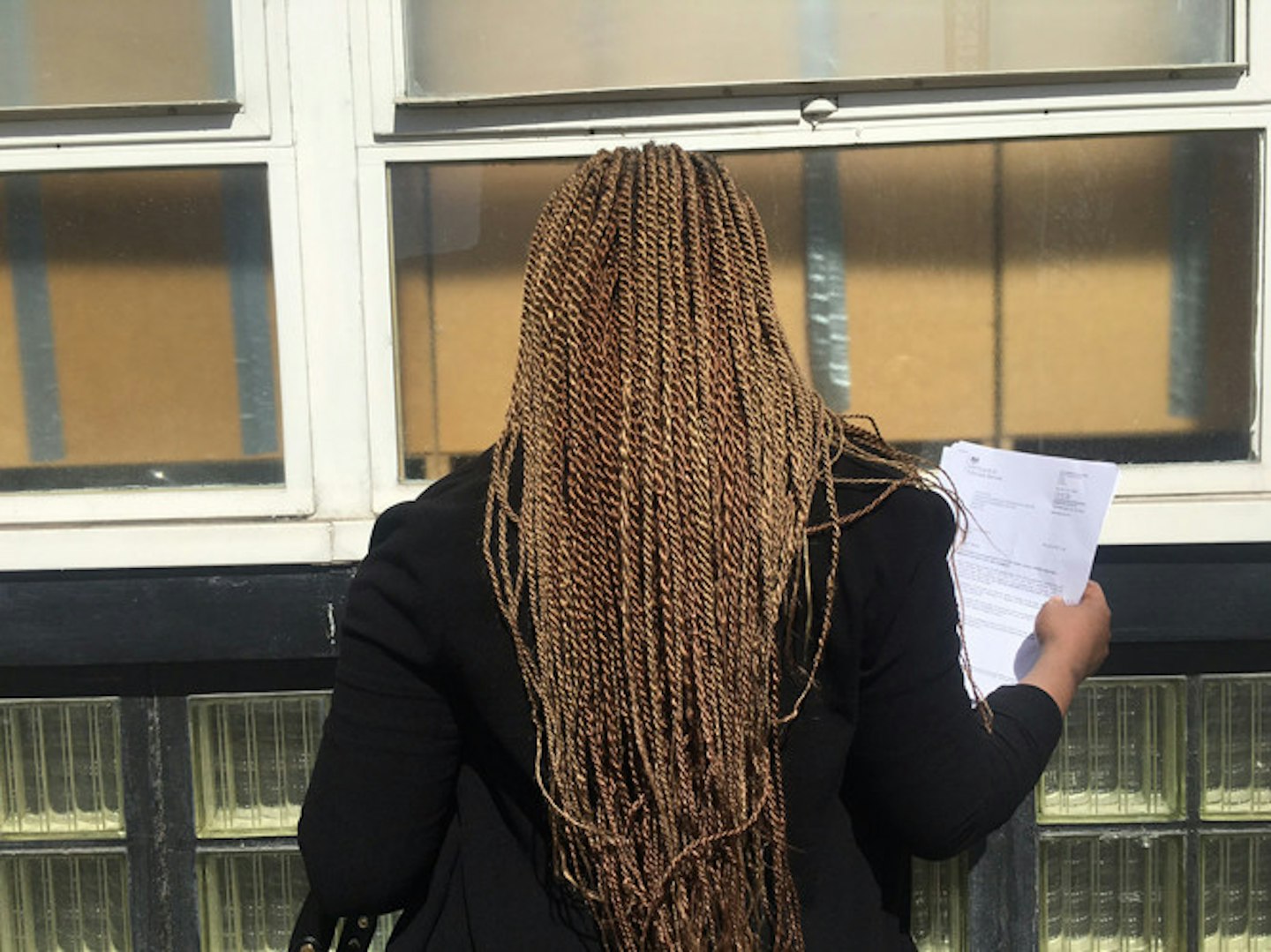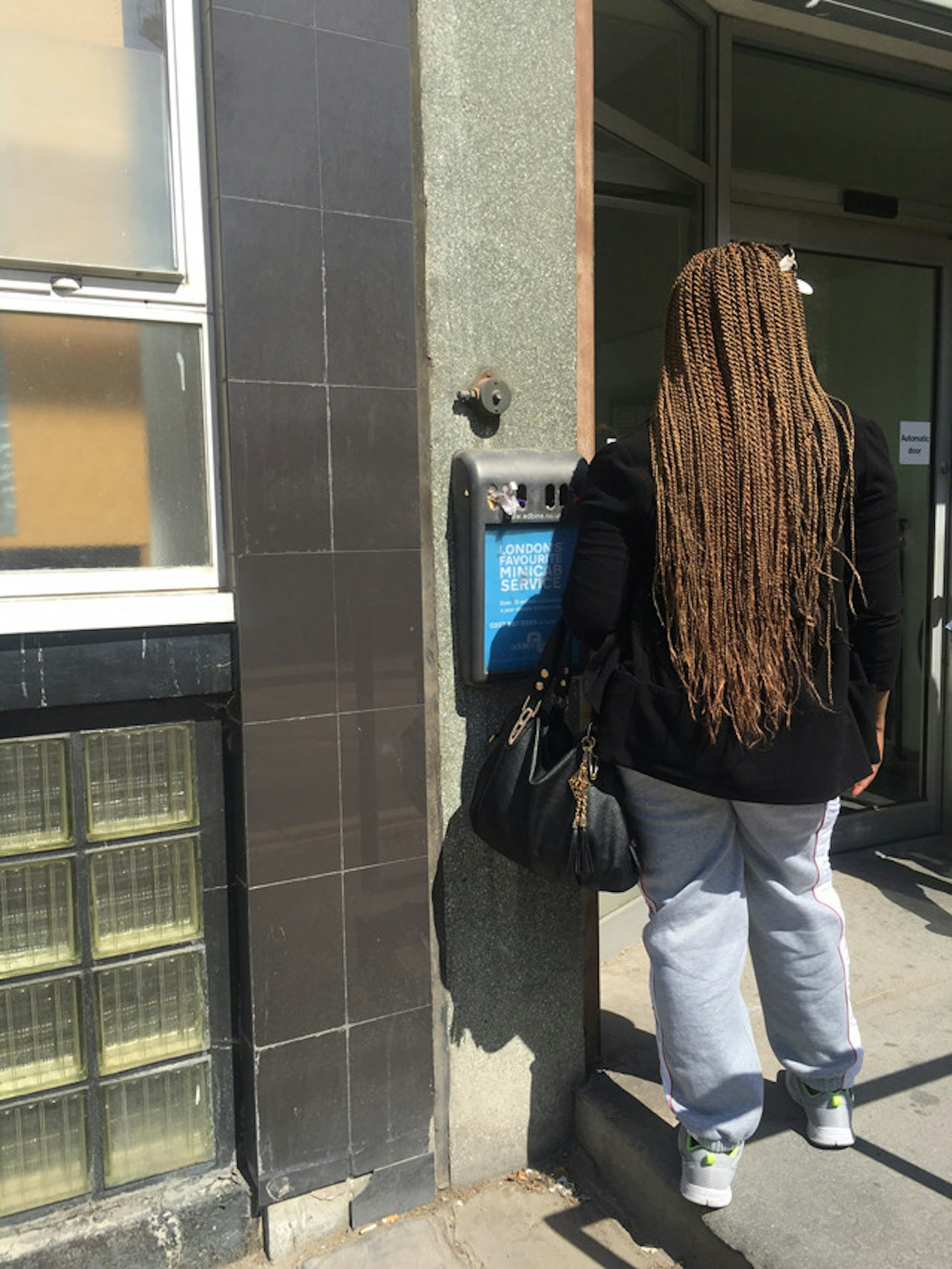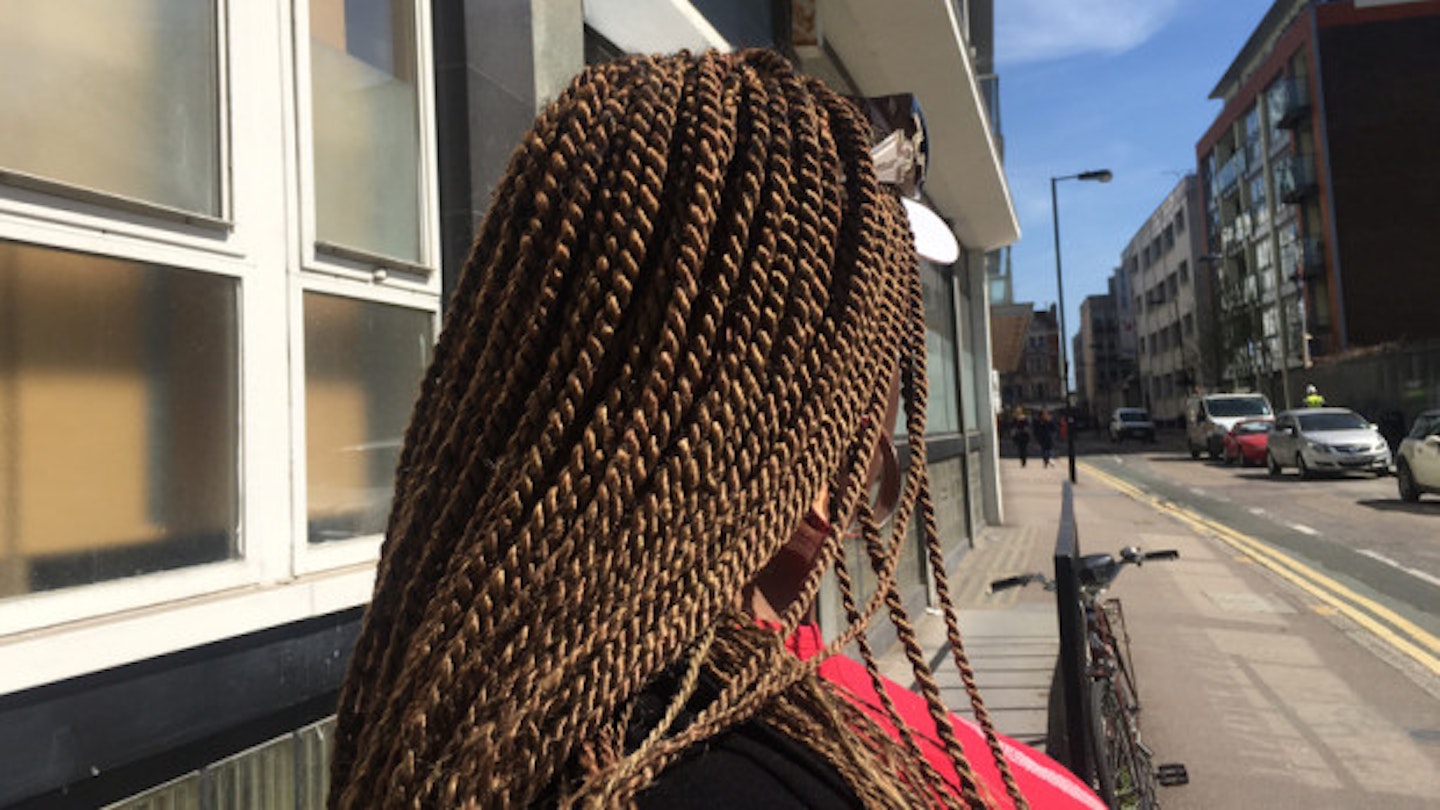Elisha* isn’t sure how old she is. She fled her native Guinea because her family were trying to arrange for her to marry her cousin. She tells me that she married an English man, a charity worker whom she met in the country and saw as a way out of her situation. He was in his 50s. She married him and her family then disowned her because he was not a Muslim. She was a teenager at the time, he brought her to England. Once they had arrived in this country the relationship became abusive she says, she left him and now has no contact with him. He also infected her with HIV. She says that he had all of her documentation, which is why she can’t be sure of her age.
‘In the immigration system my birthday is listed as 1984 but that’s not right. That’s the date of birth my husband gave me when he brought me to England. When he married me he was 53 and I was 16, so he changed my date of birth.’
Up until about two weeks ago Elisha was being detained at Yarl’s Wood IRC, where she was held for over a year. The last time we spoke she was still there, fighting deportation back to Guinea. She tells me that she genuinely believed she would not be let out of Yarl’s Wood unless it was on a plane back to her native country.

Yarl’s Wood opened in 2001 at a cost of £100m, it was designed to hold foreign nationals, including asylum seekers, who are facing deportation from the UK. It contains secure accommodation for 410 people. In 2010 the detention of children was banned, now there are campaigns to stop the detention of pregnant women. Earlier this month the House of Lords voted in favour of an amendment to the Immigration Bill which would see this come into effect if passed by the House of Commons.
The chances of Elisha being released looked incredibly slim, but then, somewhat abruptly a judge ruled that she could no longer be detained. She was released with immediate effect. Today we meet in Old Street, at the offices for Women for Refgee Women. She’s come from Lewisham where she’s currently staying with a friend. How does she feel now that she’s been released? ‘I can’t believe it to be honest’, she tells me. ‘It’s hard to explain and I don’t know how to…before I had no hope. I was really helpless. They made me believe that I would be deported. I really thought I would be. I had been in there for one year and six months.’
‘I was really surprised when I was released. A legal worker for a charity put up a £500 bond to bail me out. When we went to court about it the judge said it was not fair that I had been there [ in Yarl’s Wood] for so long. The home office did not have travel documents to remove me, they could not deport me so the judge said that it was unfair that I had been in there so long.’
‘The judge released me on ground of my mental and psychological wellbeing as well. He said ‘it’s a removal centre’, it’s not fair that you have been there for so long. They made me believe I would never come out, I believed it...’ she trails off.
Yarl’s Wood is supposed to be a removal centre, housing detainees due to be deported, but it turns out that three-quarters are eventually released according to a report conducted last year by the outgoing Chief Inspector of Prisons, Nick Hardwick. Britain is the only EU member state with no limit on the time that asylum seekers can be detained – they can, in effect, be held indefinitely and legally without decision.
The last time I spoke with her, when she was inside Yarl’s Wood, she was incredibly distressed. How does she feel now? ‘I’m not stressed like I was in there. But I don’t think it was right that they kept me for so long. It’s wrong.’
Throughout her time in Yarl’s Wood Elisha was trying to claim asylum in the UK. She fought her own appeals from inside the detention centre. Today she refers to her situation as a case of ‘human trafficking’ and says people like her, vulnerable women, ‘are not meant to be in there.’ She believes, she says, that ‘immigration are breaching the law.’

I tried to get hold of Elisha in March but could not reach her. I later found out from her that she had been taken, with no notice, to the Guinean Embassy in an attempt to get her travel documents. She was, she says, ‘treated like a prisoner’. She is also HIV positive and she was regularly handcuffed for hospital visits.
She told me at the time, ‘they handcuff me every time I go for treatment. They told me it’s because of ‘risk assessment’ but it’s not like I don’t want to go. Why do they handcuff me? They say it’s immigration security who tell them I have to be handcuffed. When I refuse the handcuffs they say my behaviour is bad – they use everything against me’.
When they took her to the Guinean Embassy, shortly before her release, she was also handcuffed, she says. They would not see her because she was handcuffed, ‘my embassy did not like it’ she says, ‘everyone needs to know what happens in Yarl’s Wood’.
What has been the best thing about being released? ‘I can do a lot of things that I could not do in there’, she lights up, ‘a lot of things!!’ She tells me, mostly, she has enjoyed being able to choose what she eats. ‘People who know me can’t believe when they see me, they point out my stomach. I [put on weight] in there. You can go there and be this size’ she makes a small waist motion with her hands, ‘and come out and be this size’ she widens her arms and demonstrates her with her entire wingspan. ‘The food was bad, junk food. It’s too much fat, people aren’t supposed to eat like that.’
What does she eat now that she can choose again? ‘I eat African food. Yesterday I had cassava leaves – I hadn’t had them for two years. I was so happy’, she starts to trail off and well up again. ‘But at the same time’ she says, ‘I worry for the other people who are in there. I have friends who are still there. I had been there so long…I’m happy but I’m not that happy…’
She may have been released now, but Elisha is still dealing with the effects of having been detained for so long. ‘Yeah, it has affected me’, she says. ‘I have strange dreams and being outside feels very strange because I was in there for so long.’
‘Sometimes I worry that it could happen to me again. I worry when I go to sign in with the Home Office that I will have to go back. I know other people it has happened to – they’ve been released and then had to go back. Every time I go to sign in I’m thinking ‘oh my god maybe I’m going to have to go back to Yarl’s Wood.’
How does the thought of going back make her feel? ‘Yes’ she says, she looks down and wells up. ‘They forced me to be there against my will and so…’ she trails off again.
Yarl’s Wood is one of 11 immigration detention centres in this country, run by a private sector company on behalf of the government. Centres like this are controversial and many hope that one-day detention centres like this will be closed down completely.
What happens now for her? She must continue to work on her asylum case but ultimately she would like to go to school ‘what has happened to me would not have happened if I was educated’, she says. ‘Don’t think like there is no hope’, Elisha says. ‘You have to always have hope in life. There is always hope.’
Report after report has shown that Yarl’s Wood is failing the women it houses, not meeting the needs of vulnerable women and is out of step with how other countries treat asylum seekers. The House of Lords recently voted in favour of a ban on detaining pregnant women. However, despite this the Home Secretary, Theresa May, went with a 72-hour limit on the detention of pregnant asylum seekers. Campaign group Women for Refugee Women said that while this 'is a positive step' it's not 'the total exclusion' they were hoping for.
You can’t help but feel that both Elisha's detention and release are sort of like the judicial equivalent of being told by your parents ‘because I said so’. If she could be so swiftly released, why was she detained inside Yarl's Wood for so long?
*names have been changed
You might also be interested in:
What Goes On At Yarl's Wood Should Be A National Scandal - So Why Isn't It?
'I Teach Young Male Refugees In Germany, And The Headlines Don't Tell The Whole Story'
Follow Vicky on Twitter @Victoria_Spratt
This article originally appeared on The Debrief.
